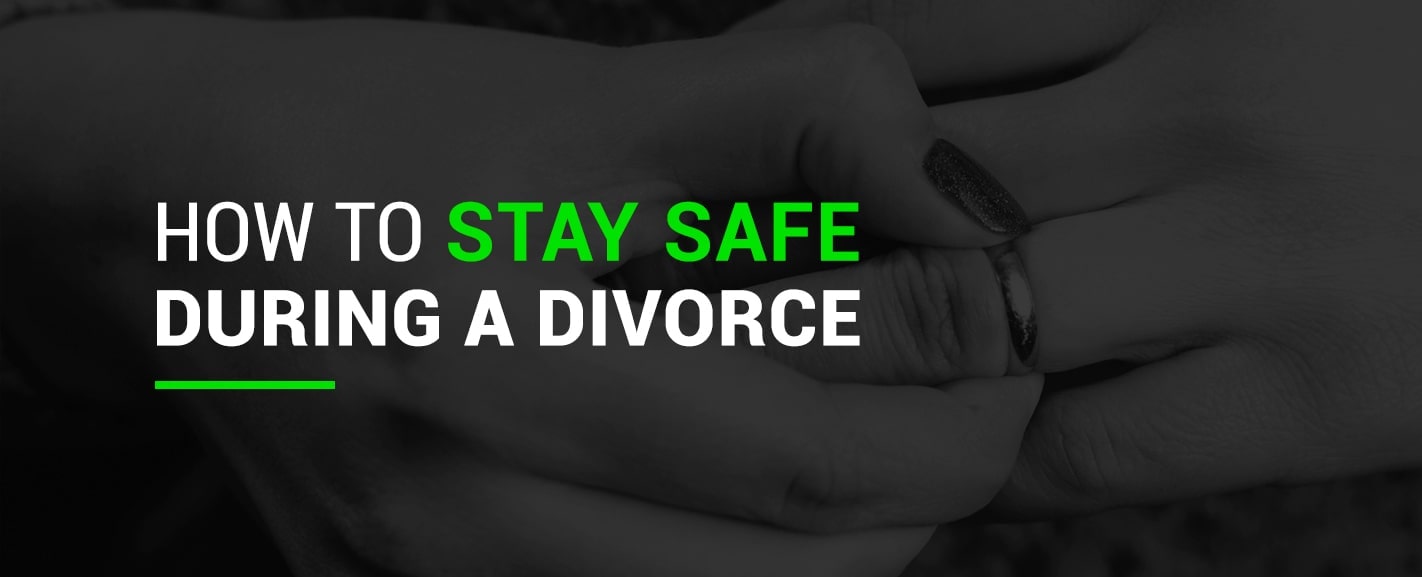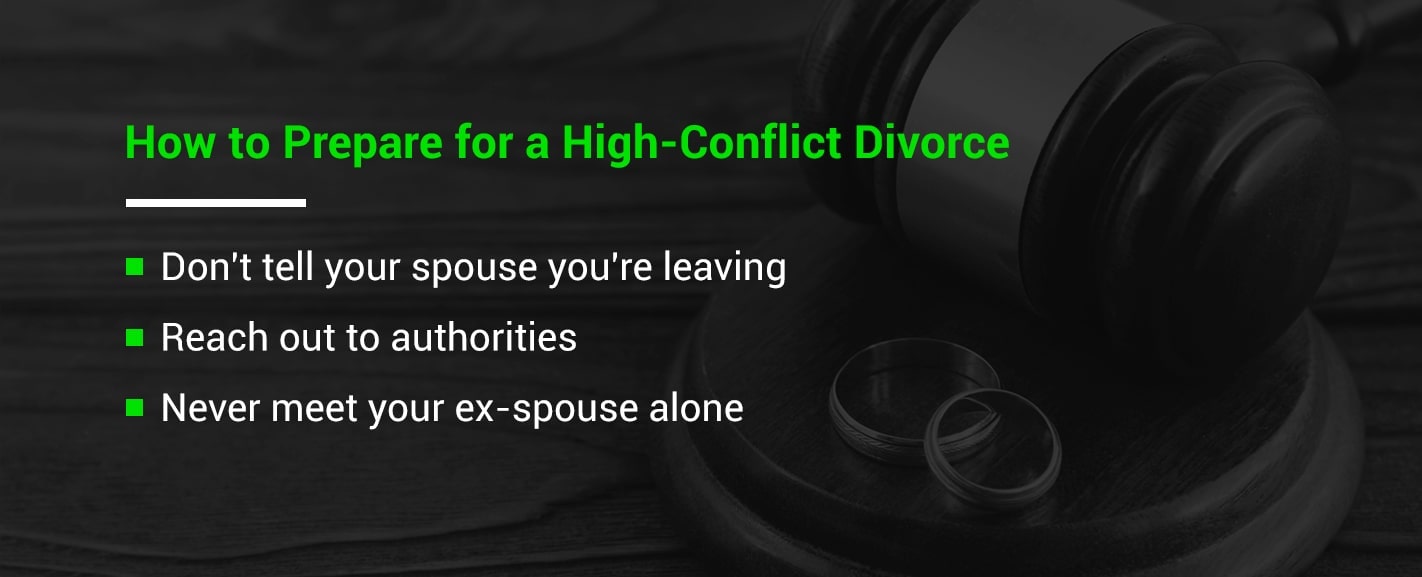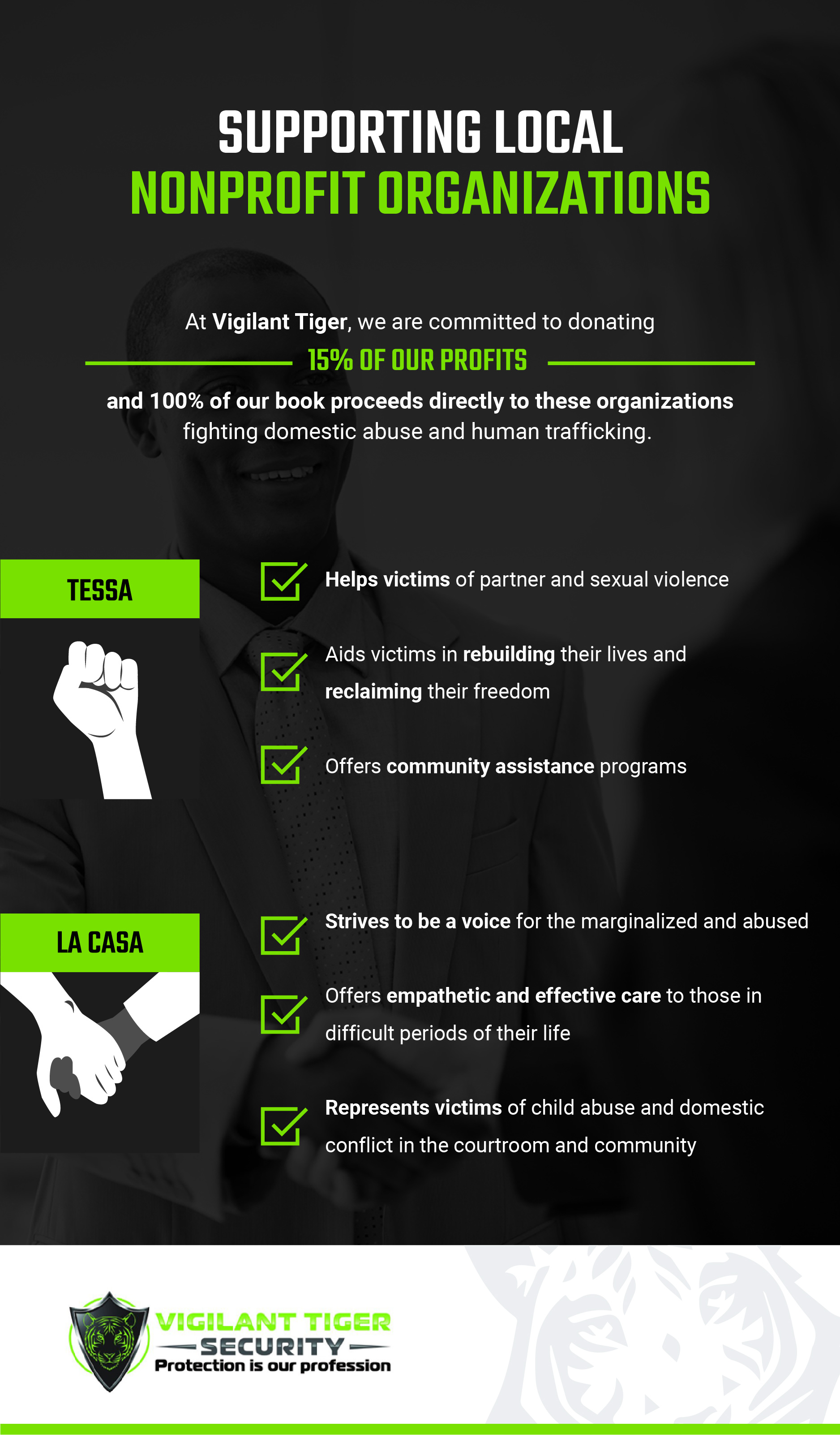
How to Stay Safe During a Divorce
March 17, 2020

Divorce may mean the beginning of a new life, but for those leaving abusive relationships, it can be a time of potential danger. Even a spouse who has never resorted to physical violence may find the divorce is the straw that broke the camel’s back.
Unfortunately, in these cases, it’s up to the victim of domestic abuse to protect themselves and their children from a potentially violent ex.
CONTACT US FOR BODYGUARD SERVICES
5 Ways to Stay Safe During a Divorce or Domestic Dispute
Regardless of whether your divorce is amicable or not, the following steps are recommended to ensure everyone’s well-being and safety:
1. Safeguard Important Documents
Things like passports, social security numbers and mortgages should be kept in a safe, neutral place. You should also make copies of these documents and keep them safe in a different place.
If you’re leaving an abusive situation, it’s even more important to keep your documents safe and easily accessible to you and the people you trust. If you have a will, make sure to update it and remove your ex if they are listed as a beneficiary. Any mementos or valuable items should also be safely stored where your spouse cannot get to them.
2. Cancel Joint Cards or Accounts
If you and your spouse had joined cards, be sure to cancel them to prevent any malicious activity that may affect your credit score. If you shared bank accounts as well, it’s best to close them down as well.
For those leaving abusive relationships, it’s recommended that you close even your individual accounts and reopen them at a different bank to keep from being found by a violent ex-spouse.
3. Get the Law on Your Side
Hire an attorney to help you deal with the potential complications of divorce, and be sure to refer to them before you sign anything at all. Your lawyer will be able to help you understand your rights and will help you find the best ways to keep you and your children safe and prepared for a new start.
4. Speak Out About Your Divorce
When it comes to protecting yourself during a divorce, speaking out is one of the best ways to ensure your safety. This is especially relevant if you’re leaving an abusive relationship because you will want all the support you can get — people can’t support you if you don’t tell them what’s going on.
It’s also a great way to maintain your privacy. When your neighbors, friends and coworkers know that you and your ex are no longer living together, they will be able to spot red flags, like if your ex is going through your mail or shows up at your workplace.
5. Attend Therapy or Counseling
Recognize that you are not alone and that you are not at fault for leaving an unsafe situation. Therapy and counseling will allow you to acknowledge your feelings and work through them in a productive way. It may also help you meet like-minded people who are familiar with your experience.
How to Protect Yourself From Domestic Abuse
In a perfect world, you wouldn’t need to learn how to protect yourself from domestic violence, but unfortunately, the reality is that there are things everyone should know in order to keep themselves and their children safe.
When leaving an abusive relationship, it can be even more frightening because you have to make a new life for yourself while still figuring out how to deal with a violent ex-spouse. Here are some tips to protect yourself:
- Get a restraining order: If you fear for your safety and well-being, consider taking out a restraining order against your ex-spouse. Give a copy to trusted neighbors, your employers and your children’s school administration, along with a photo of your ex-spouse to make sure they don’t violate the order.
- Have an exit plan: If you’re still residing with your abuser, have an emergency exit plan that you can put into action as soon as you need it. Make sure your kids and any trusted loved ones know of the plan as well.
- Break from routine: Change up the routes you take when taking the kids to school or going to work so your ex-spouse is not able to easily find you. Consider changing the times you go to the gym or alternate between walking, driving and using public transit when possible.
- Keep records: Note down any acts of violence from your ex-spouse as well as any threats. If possible, keep photos showing physical abuse — all of this will help strengthen your case.
- Change your locks: If you’re living in the same home you shared with your abuser, change the locks to prevent them from re-entering. If you’ve moved, consider using a post office box for your mail and only give out your new address when absolutely necessary. Similarly, you want to get a new phone number and only reveal it to trusted individuals.
How to Prepare for a High-Conflict Divorce
Divorce is never easy or fun, but it can be even more stressful when it’s a high-conflict divorce. But how should you prepare for a divorce?
- Don’t tell your spouse you’re leaving: Keep things to yourself and share only with your lawyer and select, trusted individuals. Knowing that you are planning to leave them can sometimes trigger or escalate violence from the abuser.
- Reach out to authorities: If you have been threatened or physically hurt, file a report with the police if you can. If you end up going to a hospital, ask that your visit be documented, so there is a paper trail to support your claims.
- Never meet your ex-spouse alone: For whatever reason, your ex-spouse may ask you to meet to talk to them about the divorce. Should you decide to meet them, avoid doing it alone. Ask a trusted loved one to accompany you and always insist on meeting in a public place with lots of people around.
How Do You Protect Yourself Before a Divorce?
There are many resources available for people who are ready to leave abusive relationships. That seemingly simple step is extremely difficult and requires tons of support.
If you’re ready to live life without fear, consider reaching out to the National Domestic Violence Hotline at 1-800-799-7233. You can also gain information and resources from the National Center for Domestic and Sexual Violence.
If you’re in the Colorado Springs area, speak to professionals at TESSA using their safe line at 719-633-3819.
Contact Vigilant Tiger Security for Help
At Vigilant Tiger, we understand the importance of feeling safe, especially after leaving an abusive relationship. We provide private security with empathy, dignity and professionalism. With ex-military staff who are fit, trained and respectful, Vigilant Tiger provides whatever type of security you need, including bodyguards and armed security guards.
Get in touch by calling (719) 313-2950, and get some peace of mind right away.



